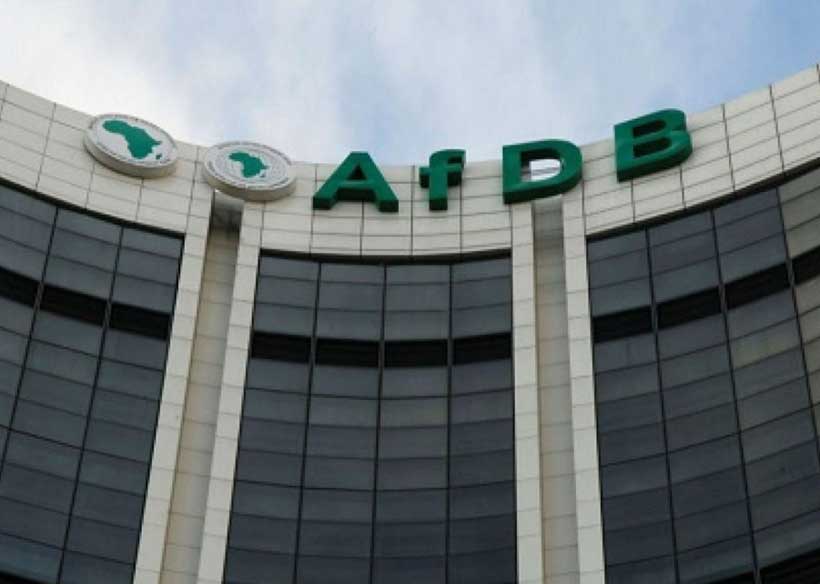AfDB Launches 2025 Cameroon Report, Urges Reforms for Inclusive Growth
Held under the theme “Maximizing Africa’s Capital for Sustainable Development”, this year’s AEO was launched during the AfDB Annual Meetings in May in Abidjan, Côte d’Ivoire.

- Country:
- Cameroon
The African Development Bank Group (AfDB) has officially launched its 2025 Country Report on Cameroon, offering a candid and comprehensive assessment of the country’s economic trajectory, challenges, and opportunities. The report, presented in Yaoundé on 22 July 2025, is part of the African Economic Outlook (AEO) 2025 series, which covers all 54 countries on the continent and provides annual updates on Africa’s development performance and outlook.
Held under the theme “Maximizing Africa’s Capital for Sustainable Development”, this year’s AEO was launched during the AfDB Annual Meetings in May in Abidjan, Côte d’Ivoire. The Cameroon-specific report, titled "Making Cameroon's Capital Work Better for its Development," highlights strategic reforms and investments needed to mobilize domestic resources, strengthen institutions, and stimulate inclusive, resilient growth.
A Recovery in Motion
The report presents an economy gradually recovering from recent global shocks, with growth estimated at 3.6% in 2024. The uptick is largely attributed to ongoing investments in infrastructure and dynamic performance in manufacturing, particularly in sectors such as agro-processing and textiles — outcomes of strategic initiatives to promote the transformation of local raw materials.
The report notes that these sectors, coupled with renewed public investment and export diversification, could help Cameroon consolidate its recovery and move toward more inclusive and sustainable growth — provided key reforms are implemented.
Launch Ceremony Highlights
The launch event was attended by high-level officials from Cameroon’s Ministries of Economy, Finance, and Trade, as well as representatives from the private sector, civil society, and international development partners.
Senior AfDB officials Ameth Saloum Ndiaye (Senior Country Economist for Cameroon) and Godwill Kan Tange (Country Economist for Cameroon) presented the report’s main findings. They emphasized that Cameroon has untapped potential across its natural, human, and financial capital, and called for strategic interventions to unlock this value.
Mamadou Tangara, AfDB’s Head of Operations for Central Africa, delivered remarks on behalf of the Director General, noting that the report was closely aligned with the priorities of the Cameroonian government, particularly the National Development Strategy 2020–2030 (SND30).
Cameroon’s Secretary General at the Ministry of the Economy, Jean Tchoffo, welcomed the report’s findings and recommendations. “This report comes at a key moment, as we are conducting a mid-term review of the implementation of our National Development Strategy 2020–2030,” Tchoffo said. “We are convinced that its recommendations will enrich our thinking and strengthen our efforts.”
Key Recommendations and Reform Priorities
The country report goes beyond analysis to present concrete proposals aimed at tackling long-standing structural bottlenecks and optimizing Cameroon’s growth potential. Key recommendations include:
1. Boosting Domestic Resource Mobilization
-
Reduce inefficient tax exemptions to broaden the tax base.
-
Implement digital solutions to increase tax compliance and revenue collection.
-
Adopt the National Integrated Financing Strategy (SNFI) to diversify financing sources, including through climate finance and carbon markets.
2. Public Sector and Governance Reform
-
Restructure strategic public corporations, especially in the energy and refining sectors.
-
Publish financial statements of public corporations to enhance transparency and accountability.
-
Strengthen rule of law, governance mechanisms, and public sector efficiency.
3. Support for Inclusive Economic Transformation
-
Improve the business climate to attract private investment.
-
Prioritize vocational and technical training to bridge skill gaps.
-
Advance digitalization, particularly in government services and banking, to foster innovation and financial inclusion.
4. Macroeconomic Stability and Fiscal Reform
-
Gradually phase out fuel subsidies while protecting the most vulnerable through targeted support.
-
Consolidate the financial sector to improve resilience and credit access.
-
Prioritize concessional financing for infrastructure and social spending.
5. Leveraging Natural and Regional Capital
-
Scale up local processing of commodities to increase value addition.
-
Develop regional transport and energy infrastructure to enhance trade.
-
Protect and sustainably exploit Cameroon’s vast natural resources, including forestry and biodiversity.
A Strategic Alignment with National Goals
The AfDB’s report aligns closely with Cameroon’s development vision as outlined in the SND30, which seeks to transform the country into an emerging economy by 2035. The SND30 focuses on industrialization, infrastructure, education, governance, and environmental sustainability — all areas addressed by the AfDB’s recommendations.
The report also links closely with continental and global development frameworks, including the African Union Agenda 2063 and the UN Sustainable Development Goals (SDGs), especially goals related to decent work, inclusive institutions, climate action, and sustainable industry.
The Road Ahead
Looking ahead, the AfDB and other partners are expected to provide both technical and financial support to help Cameroon implement the identified reforms. The focus will be on policy dialogue, capacity-building, and catalyzing private sector investment, particularly in sectors that can drive export growth and job creation.
By combining domestic reform, innovative financing, and regional cooperation, Cameroon can accelerate its transformation agenda and position itself as a model for resilient and inclusive development in Central Africa.










